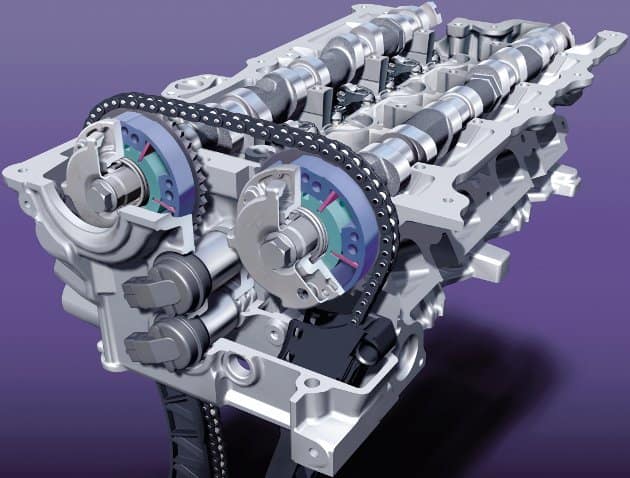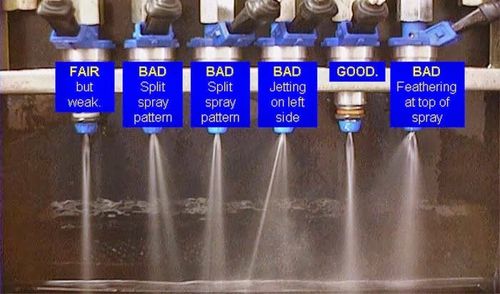In this article, we’ll discuss why your BMW may need a Tune Up.
When something's wrong with your Santa Fe BMW, contact the BMW repair experts at Ian's Garage.
BMW Oxygen Sensor – O2 Sensors
All BMW cars starting from 1980, have an oxygen sensor, often called an “O2 sensor”. Newer BMW’s have as many as four 02 sensors. The oxygen sensor is part of your BMW’s emissions control system and can detect rich and lean fuel mixtures and sends this data to the BMW engine management computer. The purpose of the oxygen sensor is to help the engine run as efficiently as possible and also to produce as few emissions as possible.
Knowing how much oxygen is detected in the exhaust system and the resulting emissions tells the Powertrain Control Module (PCM) to adjust the air-to-fuel ratio inside the engine’s combustion chamber to add (richen) or taking away (lean) the fuel mixture.
While running lean or rich, the engine will still operate, but it won’t perform anywhere near as it should
when the air and fuel in the combustion chamber are in optimal balance.
When your BMW oxygen sensor fails, the computer can no longer sense the air/fuel ratio, resulting in poor performance, poor gas mileage, and increased pollution. You’ll probably experience jerky acceleration, misfires, and rough idling.
O2 SENSOR FAILURE
When the O2 sensor starts to fail, it lets the driver know by illuminating the Engine Management Light. The engine management light is known to many drivers as the check engine light.

WHAT IS THE VANOS SYSTEM?
It is BMW’s design of the automobile engines variable valve timing. First released in the early 1990’s, this enhancement to the engine valve system allows for improved engine performance because of the reflexive opening and closing of the intake and exhaust valves. VANOS increases torque and improves idling of your BMW.
COMMON SYMPTOMS OF A FAILING VANOS SYSTEM
In general, issues with the VANOS system will result in a decline in engine performance, efficiency and fuel economy. If the VANOS
system begins to fail, you are likely to notice one or more of the following issues:
- Loss of Power/Torque
- A Hesitating Engine at Low RPM
- Rough Idling
- Increase in Fuel Consumption/Reduction in Fuel Economy
- Cold Start Issues
- Stalling in Cold Weather
- Fault Codes such as the check engine light.
- Engine Feeling Weak After Accelerating

Fuel Pump
Owners of some of the most popular BMW models have reported issues with the high-pressure fuel pump, which can cause poor acceleration, engine stuttering at high speed or even a failure of the engine to turn over at all.
All engines have two fuel pumps, the low-pressure pump which takes gas out of the tank, and the high-pressure pump which pushes the gasoline into the combustion chamber.
Symptoms of High-Pressure Fuel Pump Failure
1. Poor Acceleration
2. Engine Sputtering at High Speed
3. Engine Struggles To Turn Over
Fuel Injectors
One of the most common symptoms of a clogged fuel injector is difficulty starting the engine, Other symptoms may be:
Difficulty Accelerating
Difficulty Idling
Poor Fuel Economy
Fuel injectors can fail when debris like dirt, water, or rust find their way into the fuel system of your BMW and, after a while, clog up the nozzle, or the nozzle needle gets jammed.
At times, the Certified BMW technicians at Ian’s Garage can bring the injector back to life by using Ultrasonic vibration is often used to break up deposits, followed by high-pressure flushing,
When possible, purchase high-quality fuel from reputable service stations that are known for their premium fuel — we talk more about fuel here …

Next, we’ll discuss why your Mini Cooper may need a Tune Up.
When something's wrong with your Santa Fe Mini, contact the Mini repair experts at Ian's Garage.
ACCELERATION STUMBLING
An acceleration stumble or engine stumble, is an sudden hesitation or a decrease in
acceleration when you step on the gas pedal. While it generally only lasts for a couple of seconds before the power goes back to normal, it can be a shocking and jolting experience. Repeated occurrences of this is a may have various causes and we list a few below..
POTENTIAL CAUSES FOR ACCELERATION STUMBLING IN YOUR MINI COOPER
Fuel Injectors
Clogged, dirty, fuel injectors. This is a common cause for loss of power. The injectors spray fuel into the combustion chamber using the proper mixture of air and fuel. If they malfunction, this can cause a stumble in the acceleration.
Throttle Position Sensor (TPS)
A throttle position sensor (TPS) is the part that helps regulate the air-to-fuel ratio. If the TPS is faulty, it will be unable to relay what the best ratio is for optimal performance. This is yet one more cause of a stumble.
Air Flow Meter
If you have a MINI with a turbocharged direct injection (TDI) engine, your air flow meter is likely the guilty party if you experience acceleration stumbling. The purpose of the air flow meter is to regulate the amount of air flowing into your engine, measure the temperature of the air and fuel mixture, and report this information to the engine control unit. If the meter is faulty, it sends incorrect information and causes fuel injection issues.
Fuel and Air Filters
It is important to regularly replace your fuel and air filters to minimize debris. A clogged or blocked filter will not allow air or fuel to to mix at the most optimal ratio. This is among the least expensive causes and only requires a filter replacement.